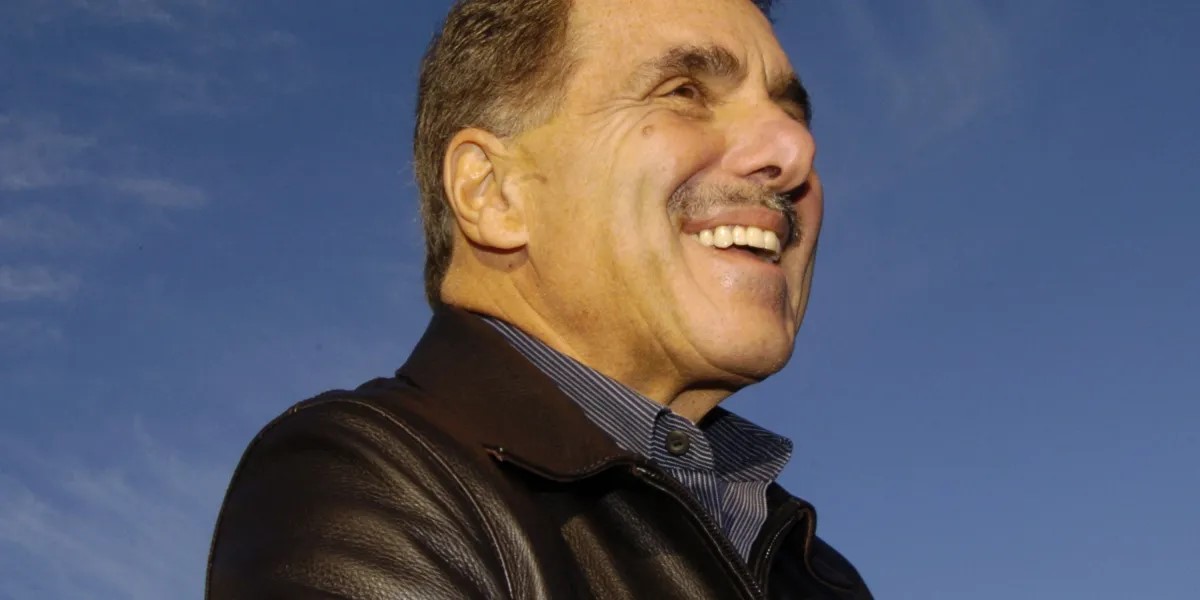King of Bookstores: Who is Leonard Riggio?
Leonard Riggio, who died at the age of 83, made Barnes & Noble the largest bookstore chain in America. Riggio brought a brand new approach to bookstores in his country and later in the world by adding cafes, comfortable armchairs, and tables to the stores.

Leonard Riggio, one of the leading names in the US bookselling and publishing world, passed away in New York. According to The Wall Street Journal, 83-year-old Riggio, who had Alzheimer's disease, made Barnes & Noble the largest bookstore chain in America.
Riggio was known for offering millions of customers a more open worldview, culture, and good coffee. He advocated diversity and did not change employees at his company for decades. In his last term, he changed many CEOs at the company, which was struggling due to pressure from its competitor Amazon.com and his own mistakes.
Leonard Stephen Riggio (February 28, 1941 – August 27, 2024) was an American businessman. He served as executive chairman of book store chain Barnes & Noble and was its largest shareholder from 1971 until the sale of the company to the hedge fund Elliott Investment Management in 2019. Under his leadership the company expanded significantly from a single retail location on 105 Fifth Avenue in New York City to a nationwide chain with 600+ stores, which it did with acquisitions and mergers of competing chain stores including his takeover of B. Dalton in 1986, which was supported by a major investment from the Dutch retailer Vendex International and Drexel Burnham Lambert–issued junk bonds.
Riggio became famous for the discounts he applied to best-selling books after purchasing a Barnes & Noble store in 1971. He then changed the landscape of the sector by acquiring various companies. Among them were B Dalton Bookseller, the second largest bookstore chain at the time, which he bought in 1986, and Bookstop, a discount bookstore chain in Texas, which he acquired three years later.
175 thousand different books on the shelves
He then focused on adding color to Barnes & Noble. He added cafes, comfortable chairs, tables, and story times to the stores he wanted to turn into meeting points. Like every merchant, he wanted customers to stay in the store as much as possible.
Jane Friedman, co-founder of digital publisher Open Road Integrated Media, said of Riggio in an interview in 2023, “He transformed the Barnes & Noble store into a place of call in a way that no other bookstore in the country had done before.”
Riggio took the company public in 1993 and embarked on a frantic store construction project. By 1997, he had become one of the largest in the U.S. by opening more than one store per week. Some superstores were as large as 5,500 square meters and had 175 thousand different books on the shelves. Publishers also benefited from this growth.
He fell out with independent bookstores, whose power could not offer the same discounts and variety of titles. The ambitious bookstore chain in the 1998 film You’ve Got Mail was probably inspired by Barnes & Noble.
In a 1992 interview with The Wall Street Journal, Riggio asked, “Other independent bookstores are greeted like messiahs when they open a new branch, but they call me a glutton. Why is that?” He said, “Any new bookstore, no matter how big it is, is something to be happy about.”
A native New Yorker, Riggio lived in an art-filled apartment on Park Avenue and raised thoroughbreds on Long Island. He was famous for his philanthropy, and through his “Project Home Again,” which he founded with his wife Louise, he donated 101 homes to the needy in New Orleans after Hurricane Katrina.
He worked in the school bookstore
Growing up in the Bensonhurst district of Brooklyn, Riggio worked in the school bookstore during his years at New York University. He dropped out of school in 1965 and opened his first bookstore, Student Book Exchange.
He made relatively few mistakes in his business career, but they were costly. Barnes & Noble was slow to move to online book sales through BN.com. Two years before this move in 1997, Amazon.com had launched online sales. As online shopping became more popular, Barnes & Noble’s number of stores decreased. The company’s move to produce its own Nook digital devices also drained its financial resources and reduced its stock value.
A series of CEOs who took over the reins later failed to recover. The company lost $125.5 million in revenue in the fiscal year ending April 28, 2018, a 6 percent drop in revenue. As store traffic declined, Riggio agreed to sell the company to hedge fund Elliott Management for $475 million in cash in 2019. Riggio is survived by his wife Louise, three daughters, and four grandchildren.
